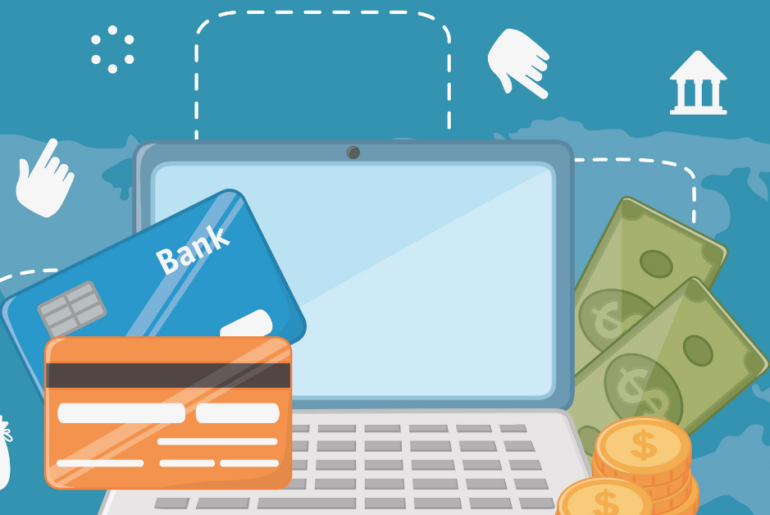Choosing between credit line vs credit card can be a confusing decision for businesses. Both options offer advantages and disadvantages that should be evaluated based on your specific business needs. Understanding the nuances of each option and how they align with your financial goals is essential in making an informed decision.
In this blog, we will explore the key factors to consider when weighing the benefits and drawbacks of credit line vs credit card.
Table of Contents
Understanding credit line:
Credit line provides access to a predetermined amount of funds that can be borrowed as needed. It functions as a flexible financing option where the borrower can withdraw funds up to the approved credit limit and only pay interest on the amount borrowed.
Benefits of credit line:
- Flexibility: The primary benefit of credit line lies in its flexibility. Unlike conventional loans that have set repayment schedules, a credit line provides the freedom to borrow funds up to a pre-approved credit limit.
You are only required to repay the specific amount borrowed in easy EMIs, rather than the entire credit limit.Moreover, the tenure is also flexible, with options spanning 3, 6, or 12 months. An additional advantage is that as you make repayments, the repaid amount becomes available again for borrowing, enhancing the revolving nature of a credit line. - Ease of approval: According to a survey conducted by BLinC Invest, the credit gap in the SME sector in India is projected to be about Rs. 25 trillion. However, the advantage of credit lines is that they eliminate the need for collateral, making it a less burdensome option for these businesses to secure funding.
Additionally, with online applications, the process of endless paperwork and in-person visits to financial institutions is eradicated.
You can easily apply for a credit line from the convenience of your office or home, saving precious time and effort with just a few steps. - Interest and repayment: Interest is charged only on the amount borrowed, not on the entire credit limit. The repayment terms vary but typically require minimum monthly payments based on the outstanding balance.
Interest rates can be fixed or variable, depending on the terms of the agreement. - No pre-closure fee: Lenders do not charge any additional fees or penalties if you decide to repay the outstanding balance or close the credit line before the agreed-upon tenure or term.
Also read: The Importance of a Business Line of Credit: How It Can Benefit Your Business
Understanding credit card:
A business credit card is a financial tool specifically designed for businesses and their employees to manage expenses related to business operations. It operates similarly to a personal credit card but with features and benefits tailored to meet the needs of businesses.
Related Read: What is credit card cash withdrawal with limits and charges?
Benefits of credit card:
- Expense management: Business credit cards provide a streamlined way to track and manage business expenses. They offer detailed statements and online tools that categorise transactions, making it easier to monitor spending, reconcile accounts, and prepare financial reports.
- Separation of finances: By using a business credit card, you can keep personal and business expenses separate. This separation simplifies bookkeeping, accounting, and tax preparation, ensuring that your business finances remain organised and compliant.
- Employee spending control: Many business credit cards allow you to issue additional cards to employees. With this feature, you can set spending limits on each employee card and monitor individual spending. It provides greater control over business expenditures and reduces the need for reimbursement processes.
- Rewards and perks: Business credit cards often come with rewards and perks tailored to business needs. These can include cash back on business purchases, travel rewards, discounts on office supplies, or access to business-specific benefits such as travel insurance, airport lounge access, or concierge services. These rewards can help save money or enhance business-related activities.
Key differences: credit line vs credit card
When comparing credit line vs credit card, there are several key differences that are important to consider:
| Aspect | Credit Card | Credit Line |
| Definition | It is a type of credit card issued by a bank to a business. | A flexible financing option that allows businesses to access funds up to a predetermined credit limit. |
| Usage | Primarily used for making online transactions, such as SaaS subscriptions, cloud services, and marketing expenses. | Intended for various business expenses, including purchasing inventory, covering operational costs, and managing cash flow. |
| Repayment | Monthly payments required, often with an option to pay the minimum balance or the full amount due. | Payments are made based on the amount borrowed, and businesses can choose to repay in instalments or as a lump sum. |
| Interest | If the full balance is not paid by the due date, interest is charged on the outstanding amount. | Interest is charged only on the amount utilised, not on the entire limit. |
| Credit Limit | Usually lower. | Usually higher. |
| Accessibility | Accessible through a physical card or digital means, and funds are available instantly up to the credit limit. | Accessible through various channels, such as direct transfer, checks, or online banking, with funds available as needed within the credit limit. |
| Purpose | Mostly online expenses. | Suited for managing day-to-day business operations, handling fluctuations in cash flow, and financing larger business needs. |
| Ideal for | Businesses with occasional financing needs and ease of transaction. | businesses with varying financial requirements and those seeking greater financial flexibility. |
| Additional features | Rewards programs, cash-back offers, and travel benefits may be available. | Overdraft protection, check-writing privileges, and direct payment options. |
Choosing between credit line vs credit card
Choosing between a line of credit vs. credit card can be a decision that benefits from having both options available, especially if neither option imposes annual or ongoing fees. Although both of them are forms of credit, their specific features make them useful in different situations.
For instance, credit cards may be more suitable for regular expenses due to the rewards and purchase protections they offer, as well as the extended payment period they provide. On the other hand, a credit line might be a better choice for significant expenses or ongoing projects because it allows for borrowing larger amounts and potentially paying lower interest over time.
The decision ultimately depends on the loan terms and how you intend to utilise and repay the borrowed funds. Regardless of the financing option you consider, it is crucial to compare interest rates, fees, borrower benefits, and repayment terms offered by different providers.
FAQs
Q1: What is the main difference between credit line vs credit card?
A credit line is a predetermined amount of fund that a business can borrow from a lender. It provides flexibility in terms of borrowing and repayment. A credit card, on the other hand, is a revolving line of credit that allows businesses to make purchases up to a certain credit limit.
Q2: When should I consider using a credit line for my business?
A credit line is typically useful for businesses that need access to larger amounts of capital for specific purposes such as funding expansion, covering inventory costs, or managing cash flow during seasonal fluctuations. It can provide a lump sum of funds that you can draw from as needed, and you only pay interest on the amount borrowed.
Q3: When should I consider using a credit card for my business?
A credit card is beneficial for day-to-day expenses, smaller purchases, and recurring payments. It offers convenience, rewards, and often includes features like purchase protections and extended payment periods. It can be suitable for managing regular online business expenses and improving cash flow management.
Q4: How can I access cash with credit line vs credit card?
Both options allow cash withdrawals, but the process and associated fees can vary. With credit line, the amount is deposited directly into your bank account. Credit cards often allow cash advances, but they may come with higher interest rates and additional fees.
Q5: How does credit line vs credit card impact my business’s credit rating?
Both credit line and credit cards can impact your business’s credit rating positively if managed responsibly. Making timely payments and maintaining a low credit utilisation ratio can help build a strong credit history, which is beneficial for future financing opportunities.
Q6: Can I have both credit line and credit card for my business?
Yes, it is common for businesses to have both. Each serves a different purpose and can provide the flexibility needed for various financial situations. However, it’s important to use them responsibly and manage the repayment obligations effectively to avoid accumulating excessive debt.
Remember, it is always recommended to consult with a financial advisor or banking professional who can assess your specific business needs and guide you in choosing the most suitable option for your circumstances.




